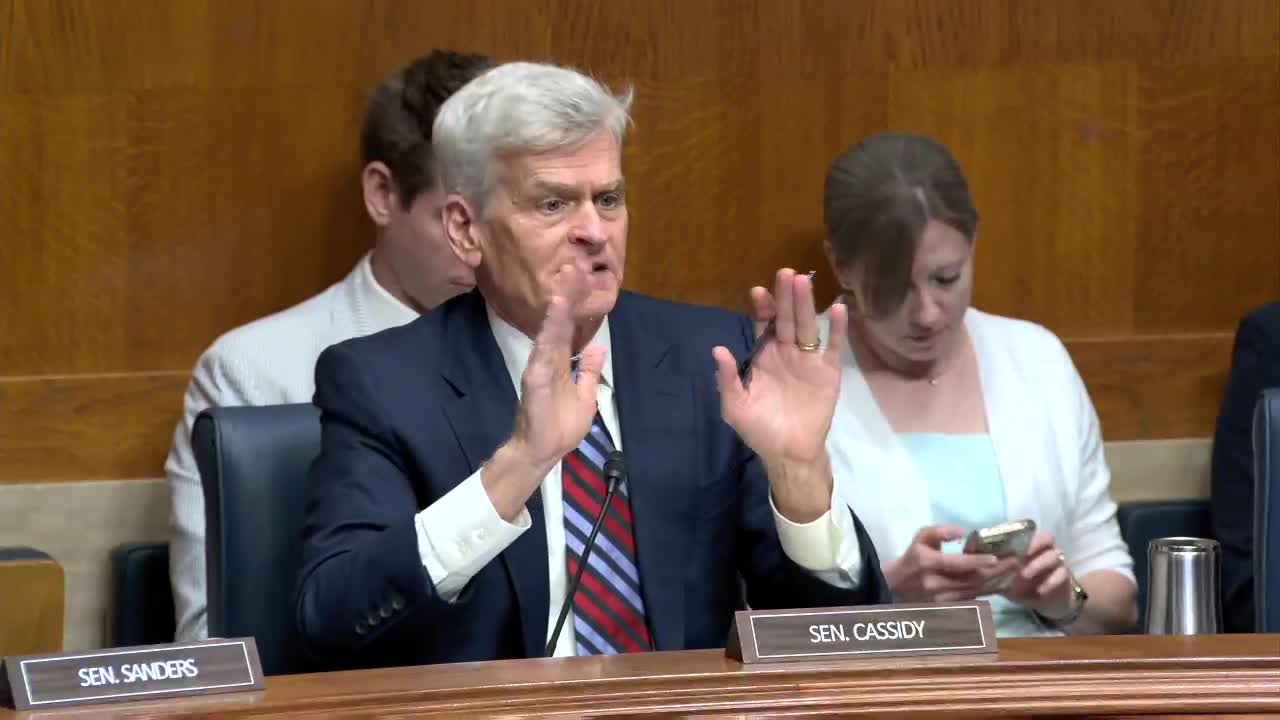Health Experts Discuss Price Transparency To Lower Premiums For Employers And Patients
July 31, 2025 | Health, Education, Labor, and Pensions: Senate Committee, Standing Committees - House & Senate, Congressional Hearings Compilation
This article was created by AI summarizing key points discussed. AI makes mistakes, so for full details and context, please refer to the video of the full meeting. Please report any errors so we can fix them. Report an error »

The U.S. Senate Committee on Health, Education, Labor, and Pensions convened on July 31, 2025, to discuss strategies for making health care more affordable and empowering patients through price transparency. The meeting focused on the importance of machine-readable files (MRFs) and the need for greater access to pricing data for employers and patients alike.
The session began with a discussion led by business representatives emphasizing the necessity of lowering health care premiums. They highlighted that employers often lack visibility into the costs associated with the health care services they purchase on behalf of their employees. Without access to clear pricing information, employers cannot effectively manage costs or negotiate better deals. For instance, if an employer discovers that a colonoscopy costs significantly less at one facility compared to another, they can make informed decisions about which providers to include in their network.
The conversation then shifted to the concept of facility fees, which are additional charges that patients incur when receiving care at hospital outpatient departments. These fees can inflate costs by as much as 70%, often without patients being aware of them until after the fact. Experts explained that patients might pay hundreds of dollars for services that could be obtained at a lower cost from independent labs, underscoring the need for transparency in billing practices.
The committee also addressed the issue of vertical integration in the health care industry, where companies may inflate costs by consolidating services. This lack of competition can lead to higher insurance premiums, as consumers have limited options when selecting policies. The discussion highlighted the critical role of competition in driving down costs and improving access to affordable health care.
In conclusion, the meeting underscored the urgent need for enhanced price transparency in health care. By providing employers and patients with better access to pricing information, stakeholders can make more informed decisions, ultimately leading to lower health care costs and improved financial outcomes for consumers. The committee plans to continue exploring these issues in future sessions, aiming to implement actionable solutions that empower patients and reduce overall health care expenses.
The session began with a discussion led by business representatives emphasizing the necessity of lowering health care premiums. They highlighted that employers often lack visibility into the costs associated with the health care services they purchase on behalf of their employees. Without access to clear pricing information, employers cannot effectively manage costs or negotiate better deals. For instance, if an employer discovers that a colonoscopy costs significantly less at one facility compared to another, they can make informed decisions about which providers to include in their network.
The conversation then shifted to the concept of facility fees, which are additional charges that patients incur when receiving care at hospital outpatient departments. These fees can inflate costs by as much as 70%, often without patients being aware of them until after the fact. Experts explained that patients might pay hundreds of dollars for services that could be obtained at a lower cost from independent labs, underscoring the need for transparency in billing practices.
The committee also addressed the issue of vertical integration in the health care industry, where companies may inflate costs by consolidating services. This lack of competition can lead to higher insurance premiums, as consumers have limited options when selecting policies. The discussion highlighted the critical role of competition in driving down costs and improving access to affordable health care.
In conclusion, the meeting underscored the urgent need for enhanced price transparency in health care. By providing employers and patients with better access to pricing information, stakeholders can make more informed decisions, ultimately leading to lower health care costs and improved financial outcomes for consumers. The committee plans to continue exploring these issues in future sessions, aiming to implement actionable solutions that empower patients and reduce overall health care expenses.
View full meeting
This article is based on a recent meeting—watch the full video and explore the complete transcript for deeper insights into the discussion.
View full meeting